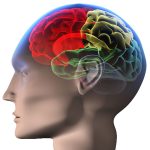A traumatic injury devastates the lives of survivors and their families; the injured person’s needs are complex: they must learn new ways to physically carry-out daily activities and/or emotionally cope with being more dependent on others for basic needs (like feeding or toileting). On top of the pains of recovery and rehabilitation, the injured person and their families or care-givers will need to navigate the healthcare system, interfacing with doctors, lawyers, government agencies, etc. N...
More
Traumatic Brain Injury
Overview of Traumatic Brain Injury

Traumatic brain injury (TBI) is defined as damage to the brain resulting from an external force, such as impact in a car accident, blast waves from an explosion, or a penetrating projectile. Even in the absence of an impact, significant (more…)
More
Signs and Effects of Traumatic Brain Injury
When a traumatic brain injury occurs, the injured person may experience physical, cognitive, or behavioral effects. Symptoms are dependent on whether the injury is localized or widespread, the severity of the injury, and the part(s) of the brain that are affected.
Mild, Moderate, and Severe TBI
With mild TBI, a person may remain conscious or may lose consciousness for a few seconds or minutes. Outside of losing consciousness, other symptoms may not be present or noticed at the time of the ...
More
Living with a Brain Injury
There’s no denying that life is different after a traumatic brain injury (TBI). In addition to all the physical changes a brain injury may bring, a TBI can also mean the loss of a career or the disruption of an education. It can change your plans for the future, alter the way you meet and make friends, and affect the way you think about yourself. Life after a brain injury usually involves challenges, but that doesn’t mean life is less valuable or fulfilling.
https://www.youtube.com/watch?v=g_...
More
Brain Injury and Sports
Anyone who has a head injury during a sporting event needs to immediately stop all activity and not return to play that day. Being active again before the brain returns to normal functioning increases the person’s risk of having a more serious brain injury. Every coach, player, teacher, parent, and trainer should know the symptoms of a concussion and the importance of getting medical help when a player has a head injury.
https://www.youtube.com/watch?v=rZox4PQo2Qg
Returning to Play After a H...
More
Rehabilitation for Traumatic Brain Injury
Most people who have had a significant brain injury will require rehabilitation. They may need to relearn basic skills such as walking, eating, or talking; the goal is to improve their abilities to function at home and in the community.
Acute Rehabilitation
As early as possible in the recovery process, individuals who sustain brain injuries will begin acute rehabilitation. The treatment is provided in a special unit of the trauma hospital, a rehabilitation hospital or another inpatient set...
More
Treatment for Brain Injuries
Treatment and rehabilitation for traumatic brain-injury (TBI) depends on the severity and effects of the brain damage. Mild TBI may require no treatment other than rest, over-the-counter pain relievers, and close monitoring by a physician for any persistent, worsening or new symptoms. Moderate to severe traumatic brain injury may require emergency surgery and intensive care to stabilize the injured person and minimize secondary injury.
Surgery
Emergency surgery may be needed to prevent or ...
More
Concussions
A concussion is a mild traumatic brain injury (TBI) that alters how the brain functions. Effects are usually temporary, but can include problems with headache, concentration, alertness, memory, judgment, reflexes, speech, balance, coordination, and sleep.
What Causes a Concussion?
The brain is a soft organ (like gelatin) that is surrounded-by and floats-in cerebrospinal fluid within the skull. Normally, the fluid around the brain acts like a cushion that keeps the brain from banging into t...
More
Diagnosing a Brain Injury
The effects of traumatic brain injuries can worsen swiftly without treatment, so doctors and other medical personnel need to assess the injury rapidly. Diagnosing a brain injury involves looking for signs of damage to the brain, either through scanning devices like computerized tomography (CT scans), magnetic resonance imaging (MRIs), and X-rays, or through screening-tests and scoring-systems that measure a person’s speech, movement, memory, and thought.
Glasgow Coma Scale
The Glasgow Coma...
More
